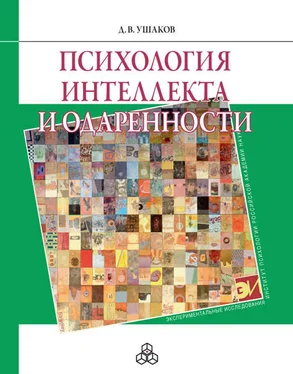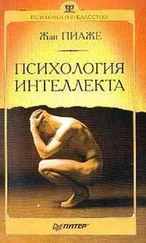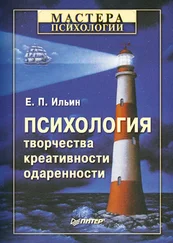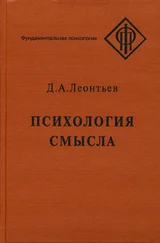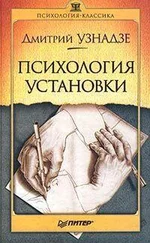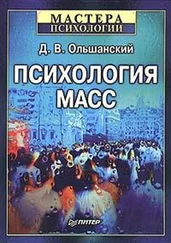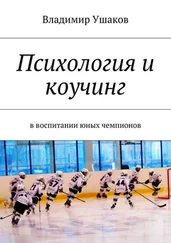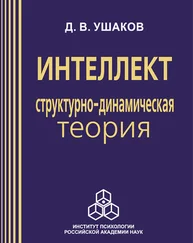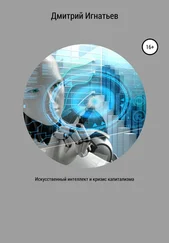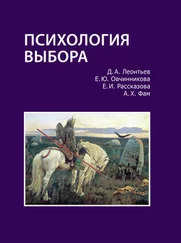Rivero L. Creative home schooling for gifted children: A resource guide. Scottsdale, AZ: Great Potential Press, 2002.
Roberts J., Engel A. Family background, early development, and the intelligence of children 6–11 years. US Department of Health, Education and Welfare, 1974.
Roe A. The making of a scientist. N. Y.: Dodd, Mead, 1952.
Roe A. A psychological study of eminent psychologists and anthropologists, and a comparison with biological and physical scientists // Psychological Monographs: General and Applied. 1953.
Rogers K. B. Do the gifted think and learn differently? A review of recent research and its implications for instruction // Journal of Education for Gifted. 1986. 10. P. 17–39.
Rosen B. C., d’Andrade R. The psychological origin of achievement motivation // Sociometry. 1959. 22. P. 185–218.
Rosenthal R. R., Jacobson L. Pygmalion in the Classroom. N. Y.: Holt, Rinehart and Winston, 1968.
Ryan D. E., Lakie W. L. Competitive and noncompetitive performance in relation to achievement motive and manifest anxiety // Journal of Personal Social Psychology. 1965. 1. P. 342–345.
Sapp G. L., Chissom B. Factor analysis of the WISC-R for gifted students. Psychological Reports. 1985. 57. P. 947–951.
Scarr S. Behavior-Genetic and Socialization theories of intelligence: Truce and reconciliation // R. J. Sternberg, E. Grigorenko (eds.) Intelligence, heredity, and environment. Cambridge University Press, 1997. P. 3–41.
Scarr S., Carter-Saltzman L. Genetics and intelligence // R. J. Sternberg (ed.). Handbook of human intelligence. Cambridge, England: Cambridge University Press, 1982.
Scarr S., Weinberg R. A. The Minnesota adoption studies: genetic differences and malleability // Child development. 1977. 54. P. 260–268.
Schacter S. Birth order, eminence and higher education // American Sociological Review. 1963. 28. P. 757–768.
Schank R. C. Active memory. N. Y.: Cambridge University Press, 1986.
Schnall S. Life as the problem: Karl Duncker context // From past to future. V. 1 (2). The drama of Karl Duncker. P. 13–28. Clark University, 1999.
Schuldberg D. Schizotypal and hypomanic traits, creativity, and psychological health // Creativity Research Journal. 1990. 3. P. 218–230.
Schustack M. W. Thinking about causality // R. J. Sternberg, E. E. Smith (eds). The psychology of human thought. Cambridge University Press. 1991. P. 92–115.
Schwarz N. Feelings as information: Informational and motivational functions of affective states // E. T. Higgins, R. Sorrentino (eds). Handbook of Motivation and Cognition: Foundations of Social Behavior. N. Y.: Guilford Press, 1990. 2. P. 527–561.
Schwartz S. H. A theory of cultural value orientations: Explication and applications // Y. Esmer, T. Pettersson (Eds.) Measuring and mapping cultures: 25 years of comparative value surveys. Leiden, The Netherlands: Brill, 2007. P. 33–78.
Seligman M. E. P., Hager J. L. Biological boundaries of learning. N. Y.: Appleton-Century-Crofts, 1972.
Shayer M. Neo-Piagetian theories and educational practice // International Journal of Psychology. 1987. 22. P. 245–264.
Shore B. M., Delcourt M. A. B. Effective curricular and program practices in gifted education and the interface with general education // Journal of Education for Gifted. 1996. 20. P. 138–154.
Siegler R. Mechanisms of cognitive growth: Variation and selection // R. J. Sternberg (ed.). Mechanisms of cognitive development. 1984. P. 141–16 2.
Siegler R. Children thinking. Englewood Cliffs, NJ: Prentice-Hall, 1986.
Silverstein A. B. Factor structure of the Wechsler Adult Intelligence Scale – Revised // Journal of Consulting and Clinical Psychology. 1982. 50 (5). P. 661–664.
Simon H. Making management decisions: the role of intuition and emotion // Academy of management executive. 1987.
Simon H. Karl Duncker and cognitive science // From past to future. V. 1 (2). The drama of Karl Duncker. Clark University, 1999. P. 1–12.
Simonton D. K. Creative productivity and age: A mathematical model based on a two-step cognitive process // Developmental Review. 1984. 4. P. 77–111.
Simonton D. K. Creativity, leadership, and chance // R. J. Sternberg (ed.). The nature of creativity. Cambridge University Press. 1988. P. 386–426.
Skeels H. M. Adult status of children with contrasting early life experiences: a follow-up study. Society for research in child development, 1966.
Smith M., Glass G. Meta-analysis of psychotherapy outcome studies // American Psychologist. 32. 1977. P. 752–760.
Southern W. T., Jones E. D. Academic acceleration: background and issues // W. T. Southern, E. D. Jones (eds). The academic acceleration of gifted children. N. Y.: Teachers College Press, 1991. P. 1–29.
Southern W. T., Jones E. D., Stanley J. C. Acceleration and enrichment: the context and development of program options // K. A. Heller, F. J. Monks, A. H. Passow (eds). International handbook of research and development of giftedness and talent. Oxford: Pergamon, 1993. P. 3 87– 4 0 9.
Spelke E. S. Initial knowledge: Six suggestions // Cognition. 1994. 50. P. 4 31– 4 4 5.
Stanley J. C., Benbow C. P. Youths who reason exceptionally well mathematically // R. J. Sternberg, J. E. Davidson (eds). Conceptions of giftedness. N. Y.: Cambridge University Press, 1986. P. 362–387.
Stanley J. C., Brody L. E. History and philosophy of the Talent Search model // Gifted and talented international. 2001. 16. 2. P. 94–96.
Sternberg R. J., Davidson J. E. The mind of the puzzler // Psychology Today. 1982. 16. P. 37–44.
Sternberg R. J., Gardner M. K. A componential interpretation of the general factor in human intelligence // H. J. Eysenck (ed.). A model for intelligence. Berlin: Springer Verlag, 1982. P. 231–254.
Stone K. M. A cross-cultural comparison of the perceived traits of gifted behavior // Gifted and Talented International. 2002. 17. 2. P. 61–75.
Storfer M. D. Intelligence and giftedness: the contribution of heredity and early environment. San Francisco, Oxford: Jossey-Bass Publishers, 1990.
Subotnik R. F., Steiner C. L. Adult manifestation of adolescent talent for science: A longitudinal study of 1983 Westinghouse science talent search winners // R. F. Subotnik, K. D. Arnold (eds). Beyond Terman: Contemporary longitudinal study of giftedness and talent. Norwood, NJ: Ablex, 1995. P. 52–76.
Taylor H. F. The IQ game: a methodologic inquiry into the heredity-environment controversy. New Brunswick, NJ: Rutgers University Press, 1980.
Taylor R. L., Sternberg L. Exceptional children: integrating research and teaching. N. Y.: Springer Verlag, 1989.
Terrassier J.-Ch. Les enfants surdoués ou «la précocité embarrassante». Paris: ESF, 1999.
Tooby J., Cosmides L. Evolutionary psychology and the generation of culture: 1. Theoretical considerations // Ethology and Sociobiology. 1989. 10 (1–3). P. 29–49.
Torrance E. P. The nature of creativity as manifest in its testing // R. J. Sternberg (ed.). The nature of creativity. Cambridge: Cambridge University Press, 1988. P. 43–75.
Trabasso T. The role of memory as a system in making inferences // R. V. Karl, J. W. Hagen (eds). Perspectives on the development of memory and cognition. Hillsday, New Jersey: Erlbaum, 1977.
Trabasso T., Riley C. A. The construction and use of representations involving linear order // R. L. Solso (ed.). Information processing and cognition. Hillsday, New Jersey: Erlbaum, 1975.
Читать дальше
Конец ознакомительного отрывка
Купить книгу
